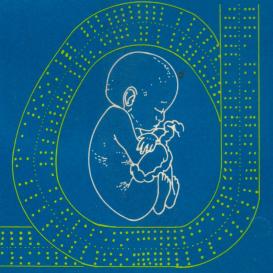Reproduction is rarely out of the news. Despite fierce competition for public attention from pandemic, war, climate change, social unrest, and economic uncertainty, heated debates over human fertility continue to grab headlines. To some extent, this is because reproduction cuts across the other topics, and resonates across scales, from the meeting of an egg and sperm to planetary health. Reproduction is both deeply intimate and hyper-mediatized, and a lightning rod for controversy. Never failing to touch a nerve, it links decisions and practices in bedrooms and boardrooms to those in labs, clinics, pharmacies, and farms.
Historians of science have examined myriad aspects of reproduction, from eugenics and population control to embryo imaging and medicalized childbirth, and developed analytic frameworks that blend approaches from science and technology studies with those from social and cultural history. "Communities of Reproductive Knowledge" draws on recent developments in oral history, media history, and inclusive history of medicine to explore how self-assembled communities of professional and lay experts have produced, communicated, and challenged biomedical, demographic, and other kinds of reproductive knowledge across a range of media.
Over a period of five years, the project will show how knowledge communities have shaped understandings, experiences, and perceptions of human and non-human biological reproduction since the mid-twentieth century. It will investigate how such communities have formed around contested objects from pregnancy tests, contraceptive devices, and abortion pills to books, films, and videos. "Communities of Reproductive Knowledge" engages with the themes of Department II by interrogating the erosion of trust in medicine, the datafication of pregnancy, and the production of environmental knowledge about reproductive health. It will not only study communities but collaborate with them to produce new resources and methods, and to promote constructive dialogue across political and other divides.

